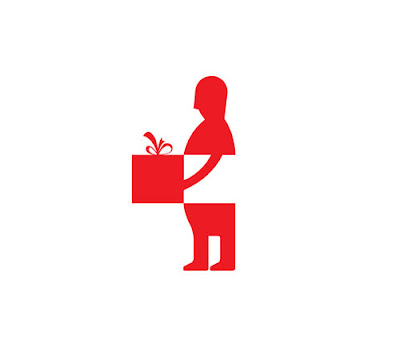
By Keith Tidman
To intervene, or not to intervene?
Philosopher Thomas Nagel set the stage for a curious thought experiment. Nagel described how, while a university professor, he noticed what he considered a puzzling scene play out. It was a spider trapped in … let us say, a sink ... in the building housing the philosophy department. The spider, despite defensively scurrying around its tightly limited terrain, seemed condemned throughout the day to becoming doused with water, incapable of altering its fate — if altering its fate was what it even wanted to do. Weeks passed.
As Nagel portrayed the scene, the spider’s “life seemed miserable and exhausting,” which led him to conclude he should “liberate” it, in a dash to freedom and a better life. Seemingly the morally right thing to do, despite the relative insignificance of a single spider. Nagel finally justified intervention on the presumption that the spider could readily find its way back to its spot in the sink if it “didn’t like it on the outside.”
That is, could Nagel’s well-intentioned rescue afford the spider a more meaningful, happier life — assuming, for the sake of argument, the spider could think in such abstract terms? Or was such interventionism haughty and presumptuous? Nagel, pondering higher-level causes and effects, humbly confessed that his emancipation of the spider was therefore done with “much uncertainty and hesitation.”
Regardless, Nagel went ahead and reached out with a paper towel in the spider’s direction, which the spider, intentionally or instinctively, grabbed on to with its gangly legs, to be hoisted onto the floor. Thus carefully deposited, however, the spider remained still, even while prodded gently with the paper towel. “Playing dead,” perhaps — and afraid of carelessly being stomped on by people walking around? The next day, Nagel “found it in the same place, his legs shriveled in that way characteristic of dead spiders.”
Nagel’s experience, and the thought experiment derived from it, tees up at least two inferences regarding the ground rules governing intervention in others’ lives. On the one hand, no matter how benevolently intended our deeds, intervention might exact unanticipated outcomes. Some ugly. On the other hand, indecisiveness and inaction might likewise result in harm — as the renowned “trolley problem” demonstrates, in which choices, including the option not to redirect the trolley, still lead to some loss of life. In short, indecision is a decision — with repercussions.
We therefore have to parse the circumstances and priorities as best we can, deciding to intercede or stay removed from the scene. Either choice is swayed by our conspicuous biases as to meaningfulness in life, despite the choices’ innate subjectivity. Both choices — intervene or leave alone — are entrapped in the unavoidable moral morass and practical implications of their respective consequences.
Nagel’s spider incident was, of course, also metaphorical of the lives of people — and whether we should judge the merits or demerits of someone’s stage-managed life circumstances, going so far as to urge change. We might perceive such advice as prudent and empowering, even morally right; but maybe in reality the advice is none of those things, and instead is tantamount to the wrong-headed extraction of the “ailing” spider. The next two paragraphs provide examples of everyday, real-world circumstances that might spur intervention. That is, let's ask this: In these and other real-world cases, of which the count is endless, does the proverbial spider warrant extrication?
For instance, do we regard someone’s work life as mundane, a dead-end, as beneath the person’s talents? Do we regard someone’s choices regarding nutrition and exercise and other behavioral habits as impairing the person’s health? Or what if we see someone’s level of education as too scant and misfocused relative to modern society’s fast-paced, high-tech needs? Do we fault-findingly regard someone’s choice of a partner to be unfavorable and not life enhancing? Do we consider someone’s activities as embodying calculable risks, to be evaded? Do we deem someone’s financial decisions to be imprudently impulsive?
Maybe those “someones,” in being judged, begrudge what they view as the superciliousness of such intercession. Who has the right (the moral authority) to arbitrate, after all, people’s definition of happiness and the meaningfulness of life, and thus choices to make, where there may be few universal truths? Where do resolute biases contaminate decision-making? One possible answer is that we ought to leave the proverbial spider to its fate — to its natural course.
But let’s also look at possible, real-world interventionism on a more expansive scale. Do we properly consider both the pragmatic and moral consequences of interceding in matters of the environment, biodiversity, and ecosystems, where life in general has inherent value and decisions are morally freighted? How about, in international relations, the promotion of humanitarian standards, the maintenance of security, and cultural, civilizational affairs? And what about in other nations’ domestic and foreign policy decision-making that bear ubiquitously across the interconnected, globalised planet?
Even the sunniest of intentions, instilled with empathy and wistful introspection, may turn out ill-informed — absent a full understanding of someone else’s situation, where the setting is key to the person’s happiness and sense of meaningfulness. Perhaps that particular someone did not need to be removed from the fabled appliance, so to speak, in order that he might scurry off toward safety.
Nagel assumed the spider might feel forlorn; but perhaps it didn’t. Maybe it was a case of infelicitous projection or a desire simply to assuage raw instincts. Let’s not forget, the spider died — and did so as the consequence of intervention. Lessons applicable to all frames of reference, from the globe to the community and individual, whom we might assume needs rescuing.
The thought experiment prods us to go beyond shallow, short-term consequentialism — beyond what happens right off the bat as the result of intervention — instead to dig into primary principles guiding the verdicts we render. Foundational moral values, personal and societal — even universal — matter greatly in these presumptive decisions.











